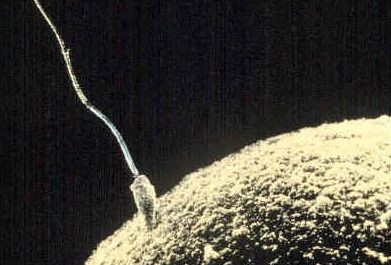Researchers Turn Back the Biological Clock on Women's Fertility

It is a well-known fact that fertility decreases for women as they become older. Not only is it more difficult for women to get pregnant as they get older but, because women are born with all of their eggs, older eggs tend to carry more chromosomal defects, leading to increased miscarriages and more congenital defects when the fetus is born. Therefore, despite the fact that humans are living longer lives than ever before, women's fertility still declines significantly after their mid-thirties. Now, researchers may have just found a way to stop the biological clock on eggs - and the process is surprisingly simple.
Researchers have long known that an enzyme named ornithine decarboxylase, or ODC, produces a substance called putrescine. Researchers have also known for a while that ODC increases during ovulation, when an egg matures and is released into the body. However, scientists were never precisely sure about why - or if - that link was significant.
In a study performed by Dr. Johné Liu, a senior scientist at the Ottawa Hospital Research Institute and a professor at the University of Ottawa, the ODC enzyme was removed in young mice. Liu found that the eggs of the mice suddenly looked very old, with a significant increase of chromosomal defects. Dr. Liu theorized that the enzyme's product, putrescine, must be critical to the development of eggs.
Liu put that theory to the test by spiking aging female mice's water with putrescine before and during ovulation. He found that the chemical increased the viability of mice's eggs by over 50 percent.
The findings could lead to a putrescine pill that middle-aged women could take to boost their number of healthy eggs.
"The idea is that we increase the odds of a 42-year-old women producing a good egg from 20 per cent of the time to 50 per cent of the time," Liu said.
"While there is work to be done before it can be approved for clinical use, we feel this approach could be used for natural conception as well as in vitro fertilization," he added in a statement.
Liu plans on following up this study with a similar one performed on monkeys.
The study is promising, but a putrescine is likely a long way from being stocked on pharmacy shelves. Though the substance is integral for ovulation and the development of healthy eggs, it is also toxic to fetuses if it is administered after conception. Therefore, timing, dosages, and monitoring would be incredibly important.
The study was published in Aging Cell.
Published by Medicaldaily.com



























